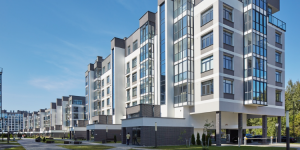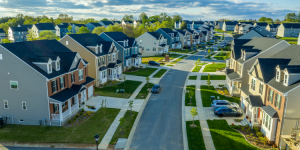
Abandoned houses, dilapidated properties, low-cost apartments, etc., for sale. While many countries are affected by housing, some of them, like Japan, are offering abandoned properties at very low prices. Does this attract expats?
Japan: abandoned houses at low prices
In Japan, the abandoned houses that are for sale are called "akiya". This is a growing and worrying trend observed long before the health crisis. In 2018, the Ministry of Home Affairs and Communications already counted 8.5 million empty houses, or 13.6% of total housing in Japan. At that time, the number had already increased by 260,000, according to official figures.
How do we explain such figures? Firstly, high inheritance tax often causes heirs to give up. In 2021, 250,000 heirs in Japan opted out of the inheritance. These cases become even more complicated when there are family tensions (absence of a designated heir, family conflicts, etc.). The geographical location of these houses (often in rural areas) and their condition (often neglected) also discourage heirs. They don't see themselves living in these houses far from their workplace. The demographic decline also explains the increase in the number of abandoned houses. The local authorities and the State are at a disadvantage because abandoned houses have a negative impact on the economy. Fewer inhabitants in a community means fewer pupils at school, fewer sporting events, fewer leisure facilities, fewer shops, fewer healthcare services and fewer public services. Ultimately, it's the life of the community and the community itself that disappear.
Municipalities also face the risk of collapse. An abandoned house is a house that has not been maintained, is more fragile and exposed to bad weather, and can, therefore, represent a risk to other inhabitants. All these reasons explain the urgent need for the authorities to refurbish rural areas. And this requires new strategies to attract foreign buyers.
Attracting foreign buyers with cheap properties
Reducing congestion in Tokyo is one of the government's biggest struggles, and financial incentives are its greatest asset. The government is providing assistance for families who are willing to move to a rural area (settlement aid, school grants, etc.). Abandoned houses are sold off to attract Japanese and foreign buyers, as foreigners can also buy property in Japan. To attract them, some municipalities have set up the AkiyaBanks website, in English, which lists abandoned houses and organizes auctions; an akiya can be sold for $20,000. Others are sold for less than $10,000. Other websites in English have been specially created to attract foreign buyers (AkiyaJapan, Akiya&Inaka, etc.).
But be aware that an akiya sold for 5,000 or 10,000 dollars can end up costing more than 600,000 dollars. You have to make sure that the abandoned house can be renovated. Otherwise, it will have to be pulled down; demolition costs are high, and the land's value may change. Expatriates who have taken the step speak of an opportunity to live the dream of home ownership. Instead of taking loans to buy properties in Melbourne, Los Angeles, or London, they chose Japan. Many already had ties with the country. They were either living there or abroad as a couple with someone of Japanese origin. For others, it's more about living a Japanese adventure.
In any case, buying a house requires time for reflection, especially abroad. You need to be able to plan for the long term, as Japanese municipalities do not target foreign investors looking to buy secondary homes.
Which countries are offering low-cost houses?
In Chinderah, a town in New South Wales on Australia's east coast, old houses are sold for $12,000. As with the abandoned houses in Japan, these houses need to be completely renovated. This is also true for Italy, Sicily and Abruzzo. Residential properties can be negotiated for $50,000 or even $25,000. Located in the south-west of South Africa, the Western Cape province is home to properties priced at around $15,000. The same price range can be found in the Canadian province of Ontario and in Alagoas, Brazil, where some properties are sold for as little as $15,000. The American states of Minnesota and Indiana are also selling off some of their properties. It is possible to negotiate the purchase of a house for 30,000 to 45,000 dollars.
Please note that these are only price ranges. They do not reflect the precise geographical area of the property, nor its condition, size, year of construction, etc. These factors are essential for determining the price of a house. It is, of course, possible to find affordable housing in many other countries. The Japanese initiative is a response to a very specific phenomenon, which is not necessarily the same elsewhere.
Are you planning a long-term life in the host country (alone, with family)? Do you want to invest to spend your life abroad or for business? In any case, buying a house is a significant investment. Proper planning, reflection and advice from professionals will help you make the right decision.
Useful links:



















